The Giver: Memory, Meaning and Belonging
One of the functions of good fiction, at least from this writer’s perspective is its ability to stir up contemplation in the minds of the reader, yet few meet this criterion. The Giver written by Lois Lowry appears to do so masterfully through its depiction of a utopian community turned dystopian.
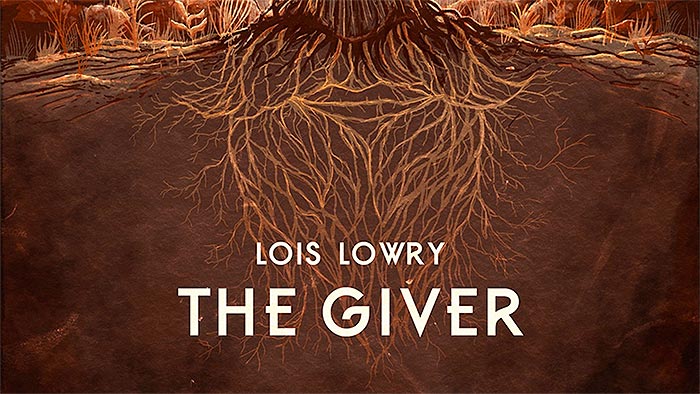
Lois Lowry’s pathbreaking 1993 young adult novel about a utopian community is not a stranger to controversy what with critics from both ends of the political spectrum ranging from parent’s organisations challenging the book for depicting infanticide and sexuality and a progressive castigating it for not being Michael Clayton: Part Deux. Since any text that inspires such concerted outrage would have had some elements worth analysing, one would be remiss in avoiding this.
The Giver tells us the story of Jonas who comes of age in a utopian society called the Community wherein the twin ideals of social cohesion and equality of opportunity has been achieved through the creation of a non-market society. In fact, it seems to have achieved the wishes expressed in John Lennon’s Imagine:
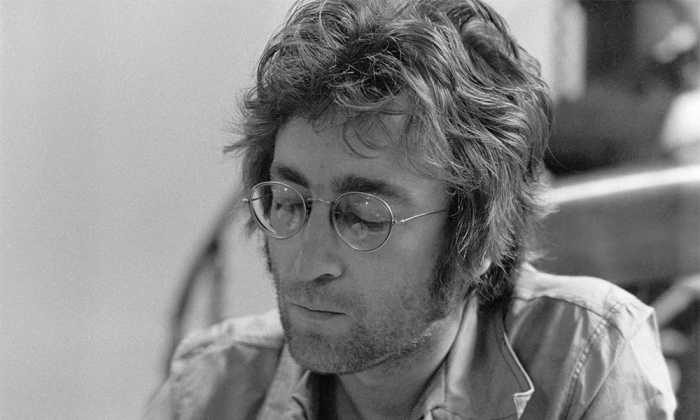
Imagine no possessions
I wonder if you can
No need for greed or hunger
A brotherhood of man
Imagine all the people sharing all the world
But as is often the case with such patterns in the sky, they are not as pristine as they would seem from the outside. This article will attempt to examine both the construction of this society as well as analyse its components disparately. (Note: From this point on this article will contain spoilers)
A Possible Utopia?
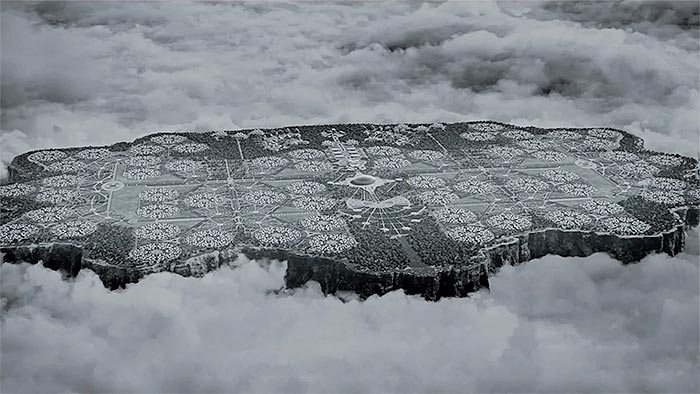
The Community in The Giver has managed to solve social conflict by creating a well-integrated society without private property while evolving a consumer goods distribution which would put all existing Public Distribution Systems (PDSs) to shame. Since there is no private property, as well as a system of job allocation based on inclination alone, conflict seems a distant memory. This construction is essentially a reiteration of what Sabine had to say about Plato’s kallipolis;
“The true romance of the Republic is the romance of free intelligence, unbound by custom and untrammelled by facts .”
GH Sabine in A History of Political Theory
Rather than interrogate the possibility of the Community, one must rather look at it by examining its constituent elements; the individual, the family unit and the community as a whole. In this case, it would be instructive to start from the community considering its central role in the life of its inhabitants.
The Blank State
The structure of the society is fairly egalitarian (with only a small dilution in having a gerontocratic Council of Elders deciding matters), but with equal dignity for the occupations allotted to children upon reaching their 12th year. Since everybody is even allowed an equal share of goods through a distribution department there is no conflict over the allocation of either office or object.
This society could have been easily designed by people in the Original Position in keeping with Plato’s city ruled by the philosopher-kings; there is a functional division of labour with an enlightened elite ruling over the society. Interestingly, one could also easily justify this society as reasonable according to Rawl’s principles of Justice.
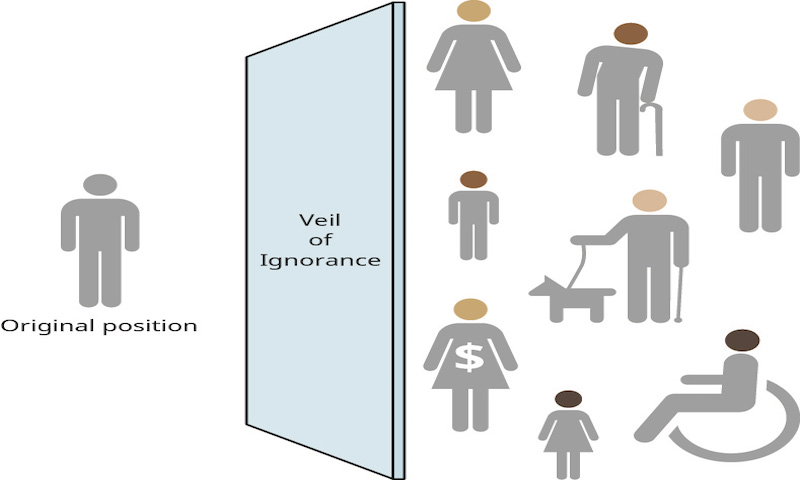
First Principle: Each person has the same indefeasible claim to a fully adequate scheme of equal basic liberties, which scheme is compatible with the same scheme of liberties for all;
Second Principle: Social and economic inequalities are to satisfy two conditions:
They are to be attached to offices and positions open to all under conditions of fair equality of opportunity;
They are to be to the greatest benefit of the least-advantaged members of society (the difference principle)
Unlike Plato’s Republic, there is neither a constitutional limitation on classes holding the political office of the Elders nor is there economic inequality which prevents this from happening in actuality, thereby satisfying both (1) and (2a). The only instance of social inequality the office of the Elders is clearly justifiable since it is instituted for the benefit of the children performing jobs that suited them, thus fulfilling the difference principle (2b). We can clearly conclude that this seems just.
But how can one trust the powerful Elders to not discriminate in favour of their offspring in the choice of careers? The Community solves this by abolishing the traditional institution of the family in favour of abstract “family units” who are allotted children as a privilege by the Community.
The Abstract Family
Long before Engel’s seminal work on anthropology titled The Origin of the Family, Private Property and the State, Plato had already made a strong case for the abolition of the family in his discussion of the communism of wives and property. He proposes the abolition of the family for two reasons to free women from the demands of child-rearing and end the possibility of an acquisitive mindset creeping into his guardian. Instead, he proposes a proto-eugenic state selected mating and a system of state stewardship over the children born from these liaisons. The Community (as expected by now) does him one better by selecting a class of women specialising in birthing children and terminating those infants who do not meet requisite standards.
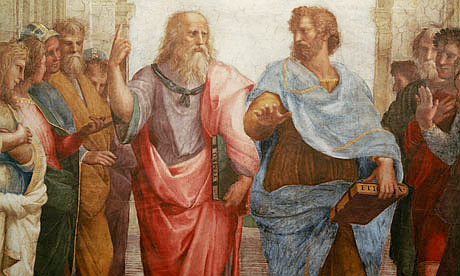
In creating this system of stewardship over the children, Plato hopes to create a society where the guardians love all the children as their own since they do not know who their children are. But his student Aristotle clearly disputes this thesis by arguing that this scheme will destroy the basis of harmony:
Whereas in a state having women and children common, love will be watery; and the father will certainly not say ‘my son,’ or the son ‘my father.’ As a little sweet wine mingled with a great deal of water is imperceptible in the mixture, so, in this sort of community, the idea of relationship which is based upon these names will be lost; there is no reason why the so-called father should care about the son, or the son about the father, or brothers about one another. Of the two qualities which chiefly inspire regard and affection- that a thing is your own and that it is your only one-neither can exist in such a state as this.
The Politics Book II (Chapter IV) – Aristotle
In the Community, it is not Plato’s ideal, but Aristotle’s prediction which is actualised; parents are fulfilling a social duty without being emotionally connected to their children. This experiment at social harmony makes affection impossible. In fact, as Jonas’s father puts it “Love is such a general term, Jonas. It is obsolete now” or to be more accurate the Community abolished it.
The engineered individual
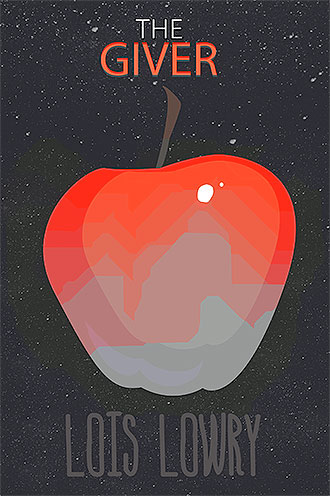
Even if true filial love is not possible due to the familial system in place, shouldn’t familiarity breed some feelings of affection? This is made by the suppression of emotions. How can one escape the possibility of conflict over the physical attributes of goods allotted to each individual? Exorcise the sensory capacity of the power to perceive difference, lest the comfortable numbness of the “Sameness” is disturbed.
The only way to go about this project would be to engage in a process of forgetting through the symbiotic processes of repression and iconoclasm. The destruction of cultural identities and traditions is made possible by an iconoclastic spirit reminiscent of Fahrenheit 9/11 albeit in service of social justice erasing all time before the Community. But our essence as historical beings compels us to constantly refer to the past, necessitating the medical suppression of those cultural memories of a world lost to time.
A Society Outside of History?
The historian himself, even before writing history, is a product of history.
E H Carr (What is History?)
It is the possibility of individuals severed from their ancestor’s history that animates our interest in ideal constructions such as Plato’s “pattern in the sky”, Rousseaus’s “state of nature”, Gandhi’s “Rama Rajya” and Rawls’s “Original Position” since that essentially liberates him from the limits the past has imposed on the exercise of his powers through tradition and custom. If history is to be understood as the process by which the past comes into being, then to erase history would be to liberate man from the chains of national allegiance, religious loyalty and racial solidarity.
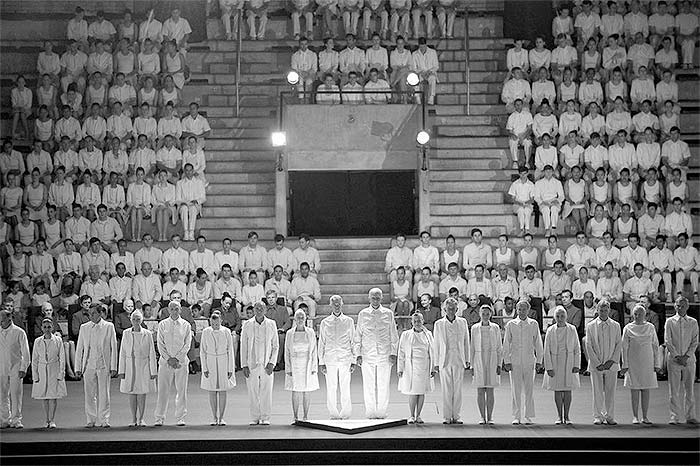
But even in this highly rationalised world the Community still finds a use for memory in acting as a repository for the policies of the past to the Elders. These memories are stored in the Receiver of memories who take the places of archives as “externalised collective memories”. In the absence of traditions, the community evolves rituals for the inhabitants. Thus, even this society that seeks to escape history and tradition still find instrumental value in the past and in rituals.
Belonging in a Meaningless World
Mark Day (The Philosophy of History) differentiated classical monuments from the modern in arguing that which the modern has presence, the ancient had meaning. This is because modernity is to be considered a product of disillusionment as noted by Charles Taylor (in Western Secularity), wherein the secular becomes primary and the divine secondary to the human condition. While one may scoff at those mourning the loss of myth as being reactionary, it would do well for us to remember that it is myth that provides meaning to our lives. CS Lewis conveys this understanding most beautifully in his essay Myth Became Fact;
The more lucidly we think, the more we are cut off: the more deeply we enter into reality, the less we can think”
CS Lewis (Myth Became Fact)
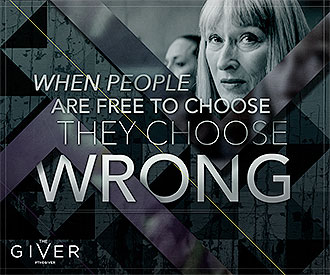
For Lewis, myth was the only way for us to overcome Orpheus’s dilemma; since it could convey meaning since its straddles both the concrete and the abstract. In fact, one could attribute Mahatma Gandhi’s unique success in conveying the meaning of Swaraj (or self-rule) through myth, thus proving the power of myth as an orienting force.
In the absence of myth to provide meaning, the Community is united by an ethos of social equality which could qualify as a un-alienated community. But can a human being become truly “at home in the world” where he or she is estranged from those emotional bonds that make them relate to their brethren? The personalisation of the collective inheritance that is history onto the shoulders of the Giver should be understood as an act of disowning the past, which further exacerbates the loss of agency which they seem to be keen on celebrating.
The Inhumanity of Utopia

The Community attempted to create a utopia by cutting off humans from their history by destroying the family and abolishing private property, but in this process deprived the individual of meaning and belonging. They destroyed beauty, love and music in favour of the comfort of total inequality. The inhumane world of The Giver is as cold as the snow that the Community chose not to feel because they forgot what real moral progress is:
…is the progress toward wisdom and virtue over a particular life: the life of a being born to know, love, and die, a personal being who has more than a merely biological destiny shared with the other mammals.
Peter Lawler( Higher Education as American Counterculture) in the Imaginative Conservative
What do you think? Leave a comment.











Awesome article!
Thank you
I read the Giver with my 7th grade class this year. It is a very powerful book and I am amazed that how well both students and adults can connected and discuss it. There are some powerful and heartbreaking moments in it. i really enjoyed reading your article!
Thanks a lot.
Reading The Giver was essential to changing my political positions on a lot of things.
I also agree that characterising books into adult and children’s reading basically sieves off a lot of good literature from the hands of adults
What an intriguing article! I love the ideas you expanded upon with The Giver. Thank you for writing this.
My pleasure !
I loved this book back when I read it in middle school, and I still hold it as one of my most important books I have ever read.
I read in high school, but I do share your opinions with regards to the importance of the book.
I love this book! It’s such a cool concept and I loved the way she unfolded all the truths about Jonas’s world. The movie definitely didn’t do it justice and upped the romance/action when the book wasn’t about that AT ALL. But Jeff Bridges was a good Giver lol.
Aye to both of that.
I felt really unnerved when I found out that their world did not have colour, an opportunity denied in the movies since it is kind of obvious after all with the lack of colour
When I heard the premise of the book, I was very excited. It sounded like a nod to the “Allegory of the cave.” But as i kept reading… there were so many plot holes, and major key things are never fleshed out. For instance, how the fuck did they manage to dump all the memories into one being? (leave it up to the reader to justify it. BULLSHIT!) The book could have been 1000+ pages and gone a lot deeper into into its lore and justified everything. The ending was total bullshit, so ambiguous, simply not needed for this book.
Anyways, sorry to ramble, but this book could have been so much better.
I’d have to disagree with you on both the memory part and the ending. To me, the ending makes sense since he could be hallucinating from hypothermia at that point. I agree that how part of iconoclasm should have been wrapped up better. That being said, keeping it short added to its viscerality, I think.
Most classic literature is more about the ideas in the book rather than the plot itself. If you don’t try to dissect the story, your time spent with it would’ve been wasted.
I can’t say I disagree.
You do realize its a series, right? The ending was ambiguous on purpose, for the other 3 books to shed some light on their fate.
Awesome. I had to come back and take another look at this book, somehow the movie came out and it was actually somewhat enjoyable. This book was nice but I still have the same problem with that ending, its my only problem because it leaves much to be desired from the book.
I couldn’t make sense of the ending, either.I figured that Jonas was halluinating from hypothermia , but I was proved wrong by the author’s latter works.
Great post. You should do Cormac McCarthy’s “Blood Meridian”. It’s an American tale of violence and an insight to the human nature.
I’ve heard of McCarthy’s The Road, but not this one in particular. I’m planning on doing one on anime the next time around, though.
This book was one of the most though provoking books I have ever read!
I agree.
In reference to Plato, this seems to be the dark side of Atlantis.
I think this would be the right side of Atlantis since I think Plato used it to poke at human hubris.
Same difference; general point seems to have gotten across.
I suppose I nitpick too much…
Typical capitalist system shadow-casting of their Dystopia as the only way forward and somehow manage to call the topic “Utopia”? Movies of books like Ecotopia, a REAL Eutopia (Greek for “the good place”) have not happened because there is no capital or distribution support to produce visions of a viable alternative to the capitalist pyramid scheme. Sooner or later the 99% will realize the destiny of humans on Earth is “the good place”. Art will separate from the money-drugged feeding tube of the 1% and start producing visions of a sustainable habitation on our planet. First comes the thought, then the reality.
If you buy capitalism, you’ve bought the idea that scarcity has always been just beneath the surface of life, whether a tribe of 50 or 7 billion people. To “save” humanity, the many must sacrifice for the few who move forward our “civilization”. [Hence you must drug, Matrix illusion them, sedate and control.] How is this even remotely possible? It’s not. The Ohlone tribelets of the SF Bay Area lived sustainably at the same numbers for 10,000 years before the authoritarian European colonialists (human, land and resource capitalists) brought their “Guns, Germs & Steel” empire to obliterate a perfect example of egalitarian, sustainable societies. If capitalist driven technology provides us tools to evolve, why can’t all humans take advantage of this in an intelligent fashion? Because the “masses” are stupid? Or maybe because they are kept stupid. This is what terrorizes the 1% most. That they should have to share power and jointly negotiate their needs, thoughts and desires, with everyone else. All working together to craft a sustainable fair future. And as we can see the authoritarian model of a beneficent dictator, or the “good boss”, will never happen when all the guns, germs, steel and capital is in their hands. They know that every truly sustainable policy decision they could make will take the power out of their hands and into the Commons we create.
Just imagine a culture of voluntary birthing based upon a knowable future each of us could plan to navigate to. An education system that is high quality and free everywhere for everyone, supported by free housing, a stipend and local food. No profit taking, false scarcity to make a profit. In 1800’s London they threw human waste into the streets until they discovered this behavior catastrophic. In the same way can’t humans decide to not have more than 2 kids if the results are not only catastrophic, but ecocide on a non-expanding planet? Imagine if we had just 3 generations of diminishing population (2 child per family max average) and we had 3.5 billion population by 2100? All the buildings, all the development would be EXCESS. No scarcity, plenty of land to grow, plenty of technology debugged and low cost, people could work two hours a day. [There are progressive magazines in the early 1900’s that were predicting this.] The bane of capitalism…poof! New World. Ecotopia!
For some reason, you seem to be echoing the argument made by Charles Alexander in the HuffPo article I linked there. I do suggest that you give it a read as well.
Now with regards to the “shadow-casting” you mentioned, I think hasn’t done as much as damage as state socialism has done to the Communist cause. In fact, it is a timely reminder of what the Swedish lagomhet costs its people ; their essence as particular beings
https://www.thehindu.com/books/swedens-dark-soul-the-unravelling-of-a-utopia-review-noir-as-reality/article25807198.ece
“Just imagine a culture of voluntary birthing based upon a knowable future each of us could plan to navigate to. An education system that is high quality and free everywhere for everyone, supported by free housing, a stipend and local food.”
Fair enough, but how will this happen? Even if I buy this argument, which I don’t I would like to know how this would be done? Will this new society resemble the Ecotopia you champion or the mob-rule I think inevitable in direct democracies ?
I think the Community is indicative of what could be.
But that is just me.
To each their own, I suppose
Cheers and Regards
I just finished reading this book for my literature class… At first I thought “oh just another dumb book”. And me personally I don’t like to read. But after reading this book I think it is amazing!!!!! I love it so much!
Ah, That is good to know.
Every ideal utopia may actually end up as a dystopia unintentionally. There’s no pleasure without pain, no appreciation without loss. 🙂
Or as Voegelin would put it any attempt at “immanetising the eschaton” is bound to fail.
I remember reading this one back in the day. I thought it was good representation about the masses and how they don’t care what kind of regime they live under as long as all of their needs are met. It would explain the Nazi Reign Over Germany and how some people ignored the tragedies in that country.
It’s also a good reflection on The Human Condition: let’s face it lots of people could act like nice individuals and could basically go to work everyday killing babies. Some wouldn’t care as long as the paycheck is fat. To say the least that always made me wonder about the Dad in the story. How could you be that ignorant and do the things he does without realizing what he’s doing? The man’s not retarded.
I think I reading of Hannah Arendt’s understanding of inner emigration is quite enlightening in this regard. The very fact that there was a possibility for inner immigration is what allowed those authors to assert their humanity. In the absence of a self, there is no possibility of inner immigration, making the Community more damned than Nazi Germany.
If a father refuses to acknowledge an emotional bond with his child as he did with Jonas, since emotions seize to exist, he would not see his actions as wrong, since the Community is always right.
I think most people would agree with me that Avant-garde literature is the most difficult to understand.
I think I need to look up avant-garde literature as well. Thanks.
That is just a matter of perspective.
This book is really one of a kind. It got me reconsidering what is life. At the end of the book, the light itself reminds human that no matter what tough things you’re dealing with, there is light ahead of you. As Fitzgerald written ‘tomorrow we will run faster, stretch out our arms farther’, we might reach the light. The reailty is indeed full of Sh*t but we need to keep ourselves moving on. Sometimes the truth ain’t good enough, people deserves more.
I think I can’t add much to your well-considered thoughts on this matter but repeat Mikasa Ackerman’s refrain from Attack on Titan
“The world is merciless, and it’s also very beautiful.”
Finally someone was able to put into words exactly what this book is about and the true meaning of it’s message. I’ve been looking for someone who can describe to me this book the way that you did.
Thanks a lot for that, Chu. I’m happy I could do that for you.
Interesting, a dystopian society that works.
Yes, which makes it all the more chilling, eh ?
This is one of my favorites, my 5th grade teacher began reading this to our class but then stopped at the bath scene but I was so intrigued that I picked it up for myself.
I see that you could sense a good story when you see it. Good choice
I read “The Giver” in middle school and theme of utopia and dystopia was really interesting. The “utopia” concept in the book is deeply connected to Thomas More’s book on the subject.
Also, I think that the connection you made to John Lennon’s “Imagine” is relevant as it encourages people to think about an “imagined, dream world” that we might not ever experience in our lifetime.
The theme of utopia and dystopia was really interesting. The “utopia” concept in the book is deeply connected to Thomas More’s book on the subject.
Also, I think that the connection you made to John Lennon’s “Imagine” is relevant as it encourages people to think about an “imagined, dream world” that we might not ever experience in our lifetime.
This is definitely one of those “Childhood” books that I reread every couple of years or so. It still manages to scare the hell outta me – moreso now as an adult who is very aware of the social/political air about us that relates a little too close to this book.
I have to agree with you on that.
I read this one in college rather than in school because everyone EXCEPT me had been forced to read it in school and I was curious. I was engrossed by the story, but wanted to throw the book at the wall at the ending because it just ends. There’s no explanation of what happens to ANYONE.
I think that the uncertain ending is quite reminiscent of R L Stevenson’s Kidnapped. Maybe the latter books of the quartet may help with that ?
This article is amazing. Speaking of Lois Lowry, maybe tackle “Number the Stars” someday? It’s a GREAT one about the Holocaust.
Thanks for the suggestion. I will probably do that .
This is my favorite book. I remember reading it in 1st grade and loving it. I freaked out when I found out it was a series and my husband bought me the quartet. I felt like the movie was trash, but this is coming from someone who generally hates book to movie movies.
I personally wouldn’t say the movie was trash, but yes the book was better.
I worked in a group home for troubled kids. The teens were given the Giver to read by their teachers and the boys especially really got into the book. Every night we had our nightly discussions, usually about feelings or ways they dealt with problems throughout the day in a group therapy session. While they were reading the Giver they were able to mimic their own lives with the story. A lot of them came from horrible family lives of drug addict and abusive families. They knew what it meant to live on your own, not be fed and go out looking for help (which in their cases led to trouble) at an early age. At the group home they had 3 meals a day plus two snacks so they never starved. They had counsellors who looked after them but the also had rules, bed times, rules for hygiene, behavioral rules, etc. They understood the difference in a sameness vs real life situation and were able to adapt their own lives to the story. When asked which they preferred 80% said real life not sameness.
I actually watched the film this afternoon and to be fair to the film it is based on material that pre-dates The Hunger Games and Divergent. It is unfortunate that it has been released after those films because as the Good Doctor points out it looks like a copy of the two. While it isn’t wholly as successful as a film viewing experience I thought it was more ambitious in what it set out to do. I say this because it it relies less on action and pacing, and instead relies on the power of dreams and emotions. It tries to explore the nature of humanity and who we are. It has its problems but the central pairing were strong and I’m glad I’ve watched it.
I agree with you wholeheartedly on this one.
Isn’t The Giver required reading at the junior high level? I wonder how the story’s central message of individualism and self-reliance can get through to young minds who are constantly indoctrinated with a collectivist way of thinking. I would hope the book kindles a little flame within their hearts that will one day light the way to a hunger for truth and liberty.
I’m not from India, so we didn’t have that here.
But yes, individuality is something worth preserving indeed.
It’s required reading a lot of places. Though I never was forced to read it. I read it years later on my own because all my friends had been forced to read it.
This was a really fascinating read! I don’t have many philosophical thoughts on this, but I wanted to point out a sentence I felt was chillingly and poignantly written:
“The inhumane world of The Giver is as cold as the snow that the Community chose not to feel because they forgot what real moral progress is:”
It floored me!
Thank you, Georgia.
I’m happy that you enjoyed my closing..
I really enjoyed your argument against the existence of filial love and how it contrasted with familial love.
I remember this book fondly from when I was in the 5th grade. I loved it so much that for my project at the end of the year I wrote a different ending branching off of the cliffhanger at the conclusion.
Utopia is a great theory, but it’s not possible. If one places Utopia as a fair, just, all around best scenario it cannot live up to individual expectations. As humans we don’t have a direct line of communication that has a defined outcome for each word or symbol.
Some people declare they have the perfect life, but are miserable. It’s not about material, it’s about awareness, reaching an individuation through a select process that gives enough room for different paths of getting to that realm. Carl Jung, The Red Book is the closest I’ve found as a guide. It’s not something that can be forced, and taking into account that Utopia has a different perspective for any given individual it could not exist.
Utopia is a great theory, but it’s not possible. If one places Utopia as a fair, just, all around best scenario it cannot live up to individual expectations. As humans we don’t have a direct line of communication that has a defined outcome for each word or symbol.
Some people declare they have the perfect life, but are miserable. It’s not about material, it’s about awareness, reaching an individuation through a select process that gives enough room for different paths of getting to that realm. Carl Jung, The Red Book is the closest I’ve found as a guide. It’s not something that can be forced, and taking into account that Utopia has a different perspective on what its perceived as makes it unattainable.
I have never read the book or watched the film. Your discussion got me interested in doing both. It also reminded me of the perpetual tug of war between the family-centered traditions and love and the community-wide interdependence and equity.
This was such a great book! Thanks for writing an article on it. So well written 🙂
I love the way you explored the similarities of The Giver with other pieces of more philosophical literature that this story must have originally been based on. I cannot wait to check out these texts Plato wrote on his Utopia since it is a very interesting thing to attempt to imagine an ideal world. I wonder if Lois Lowry actually based the book’s Community on them? Either way, The Giver is so fabulous at depicting how there will always be horrifying side effects of whatever system our society lives in.
I really liked the way you integrated the book and the movie, discussing the complex work adroitly in a short yet adequate article. Incredibly written. If I had written this, I would probably have ended up rambling non stop on some inconsequential points. Well done.
An interesting essay, good reference to Plato.
Big fan of his in some ways, but Aristotle was right on the money sometimes.